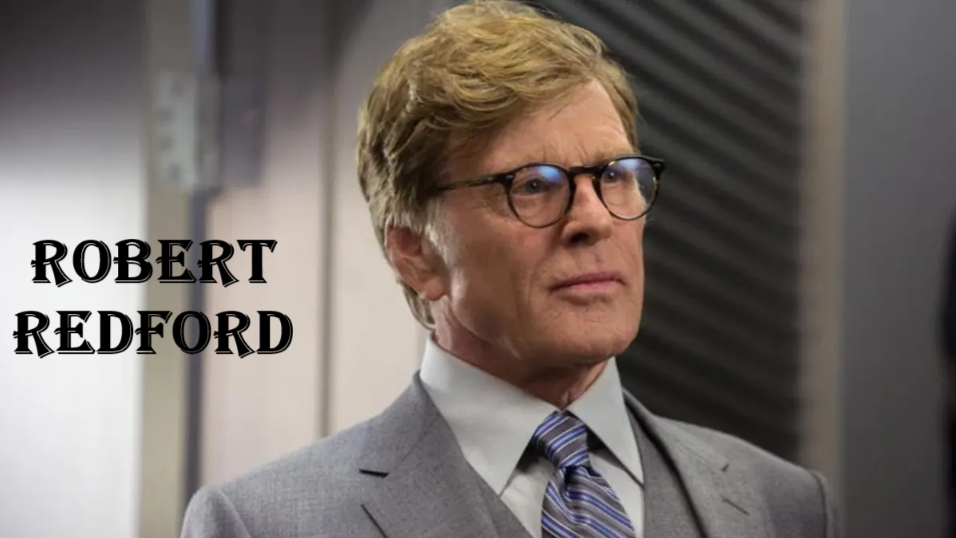Few figures in Hollywood embody both artistic talent and social consciousness as profoundly as Robert Redford. An acclaimed actor, director, producer, and activist, Redford has left an indelible mark on American culture. His career spans more than six decades, and his influence reaches far beyond the silver screen. From starring in legendary films to founding the Sundance Film Festival, Redford has become synonymous with cinematic excellence, environmental advocacy, and support for independent voices.
Early Life and Education
Robert Redford was born on August 18, 1936, in Santa Monica, California. Raised in a working-class family, he grew up during the Great Depression’s aftermath and World War II. His early years were shaped by a love of sports and the outdoors, but his path took a turn when he discovered art and theater.
After graduating from high school, Redford attended the University of Colorado, where he briefly studied art before dropping out. He then pursued painting in Europe, traveling extensively and broadening his worldview. Eventually, his passion for performance brought him to New York City, where he studied acting at the American Academy of Dramatic Arts.
Rise to Stardom
Redford’s acting career began in the late 1950s with television appearances on shows such as Perry Mason and The Twilight Zone. His breakout moment came with the Broadway production of Barefoot in the Park (1963), written by Neil Simon, where his charm and stage presence captivated audiences.
Hollywood soon took notice. Redford’s early film roles in Inside Daisy Clover (1965) and The Chase (1966) introduced him to wider audiences, but it was the late 1960s and 1970s that cemented his stardom.
Iconic Film Roles
Redford quickly became one of Hollywood’s most bankable stars, known for his charisma, good looks, and nuanced performances. Some of his most notable films include:
-
Butch Cassidy and the Sundance Kid (1969): Teaming up with Paul Newman, Redford played the outlaw Sundance Kid in this classic Western, establishing himself as a leading man.
-
The Sting (1973): Again alongside Newman, Redford starred in this con-artist caper, which won the Academy Award for Best Picture.
-
All the President’s Men (1976): Playing journalist Bob Woodward, Redford helped dramatize the Watergate investigation, solidifying the film’s role in political cinema.
-
The Natural (1984): A beloved sports drama that showcased his ability to bring emotional depth to iconic roles.
-
Out of Africa (1985): Starring with Meryl Streep, this sweeping romantic drama won seven Oscars, including Best Picture.
Redford’s versatility allowed him to move effortlessly between Westerns, dramas, thrillers, and romances, making him one of the most respected actors of his generation.
Behind the Camera: Directing Career
Not content with acting alone, Redford turned to directing, achieving critical acclaim almost immediately. His directorial debut, Ordinary People (1980), won four Academy Awards, including Best Picture and Best Director. The film’s intimate exploration of family trauma demonstrated Redford’s skill in guiding complex performances and narratives.
He went on to direct and produce several notable films, including:
-
A River Runs Through It (1992): A visually stunning drama that also highlighted Redford’s love of nature.
-
Quiz Show (1994): A historical drama about television scandals in the 1950s, which earned multiple Oscar nominations.
-
The Horse Whisperer (1998): Both directed by and starring Redford, this film combined his talents in front of and behind the camera.
Champion of Independent Film
Perhaps one of Redford’s most enduring contributions to cinema is his creation of the Sundance Film Festival. In 1981, Redford established the Sundance Institute in Utah to support independent filmmakers. The festival quickly became one of the most prestigious platforms for emerging talent, launching the careers of directors like Quentin Tarantino, Steven Soderbergh, and Ava DuVernay.
Sundance has grown into a cultural institution, shaping global cinema by promoting diverse voices and groundbreaking storytelling. Redford’s commitment to fostering creativity outside the Hollywood system has changed the trajectory of film history.
Environmental Activism
Beyond cinema, Redford has been a passionate advocate for the environment. His love for nature, rooted in his childhood and years spent outdoors, inspired him to campaign for conservation efforts.
He has worked with organizations like the Natural Resources Defense Council (NRDC) and used his public platform to address issues such as climate change, renewable energy, and wildlife protection. Through both activism and filmmaking, Redford has consistently highlighted the importance of preserving the natural world.
Awards and Honors
Throughout his career, Redford has received numerous accolades, including:
-
Academy Award for Best Director (Ordinary People, 1980).
-
An Honorary Academy Award (2002) recognizing his contributions to film.
-
Golden Globe Awards for both acting and directing.
-
The Presidential Medal of Freedom (2016), awarded by President Barack Obama for his cultural and environmental contributions.
Personal Life
Redford has been married twice and has four children. Despite his fame, he has often shied away from the Hollywood spotlight, preferring a more private life focused on family, nature, and philanthropy. His humility and grounded perspective have added to his enduring appeal.
Legacy
Robert Redford’s legacy is multifaceted. As an actor, he defined an era of Hollywood with his performances. As a director, he proved his ability to tell compelling stories from behind the camera. As a cultural leader, he transformed the film industry by championing independent voices through Sundance. And as an activist, he has used his influence to advocate for the planet.
Few figures have blended artistry, activism, and leadership as seamlessly as Redford. His career is not just about entertainment—it is about using art to inspire, challenge, and create lasting change.
Final Thoughts
Robert Redford’s story is one of constant reinvention and impact. From Hollywood stardom to pioneering independent cinema and environmental activism, he has proven that celebrity can be used for meaningful influence. His contributions have shaped both film and culture in profound ways, ensuring that his legacy will endure for generations.
Mukesh Ambani: India’s Business Titan and Global Visionary
Tyler Robinson: The Legacy Behind a Foundation of Hope
Jimmy Kimmel: A Voice of Humor, Satire, and Late-Night Television

